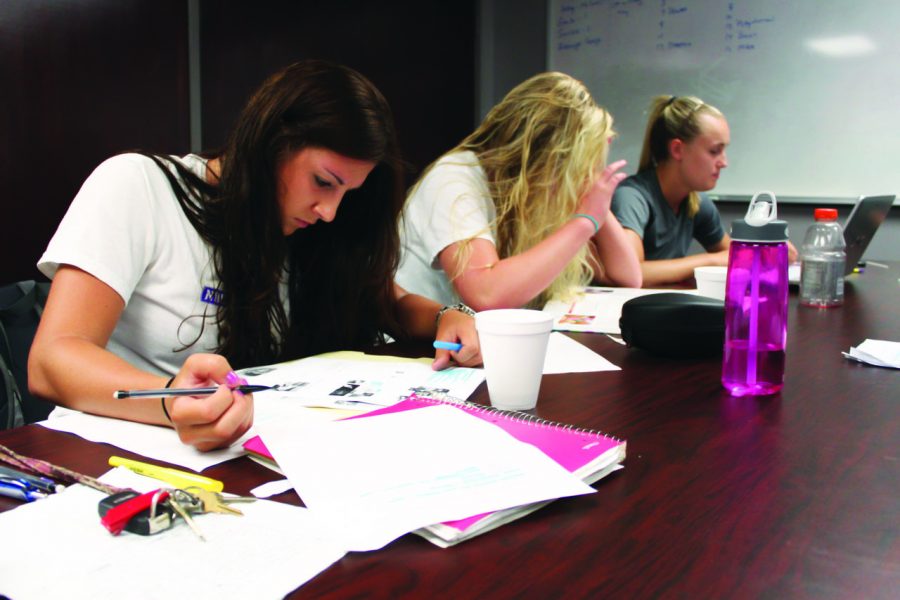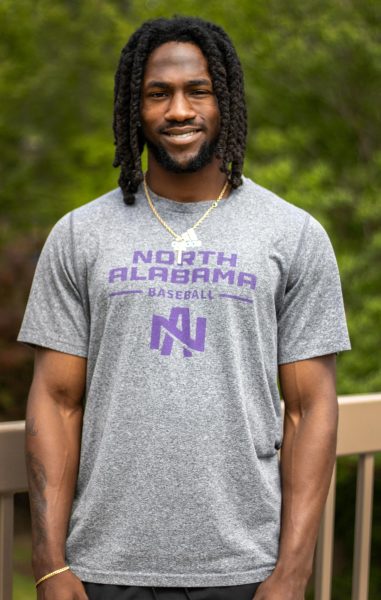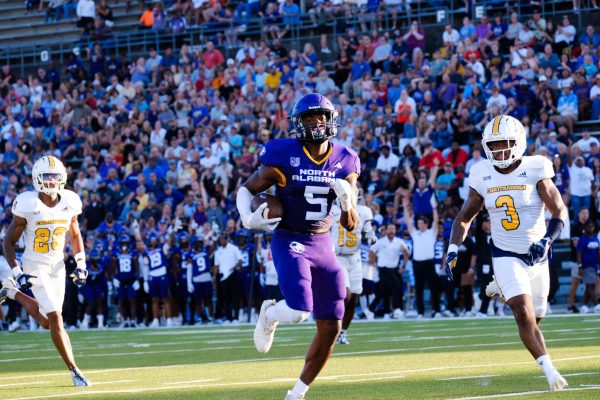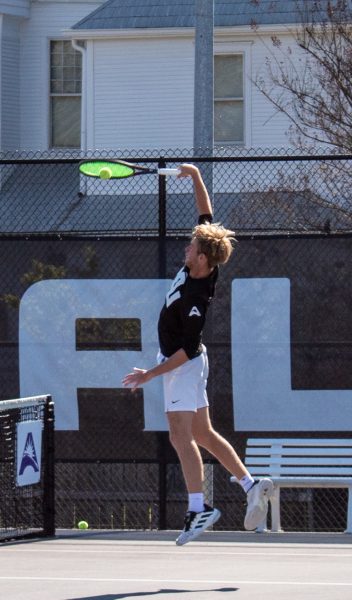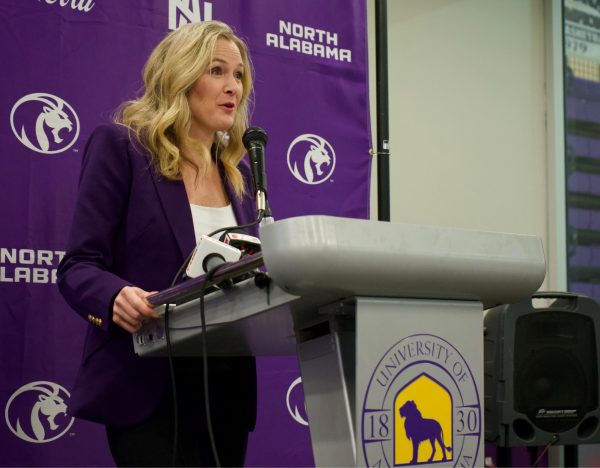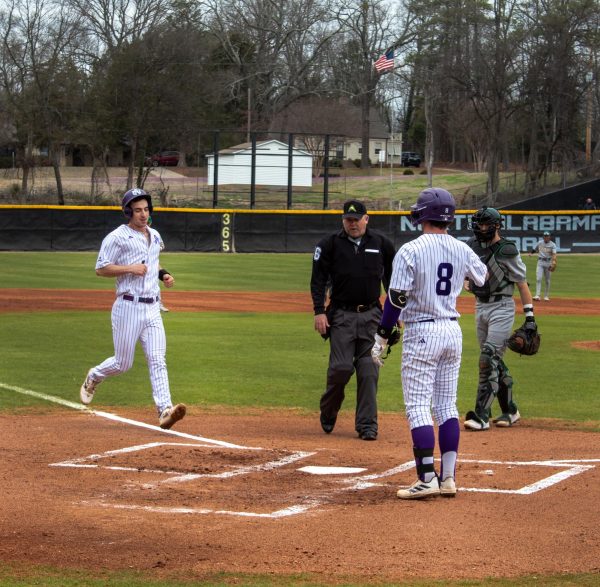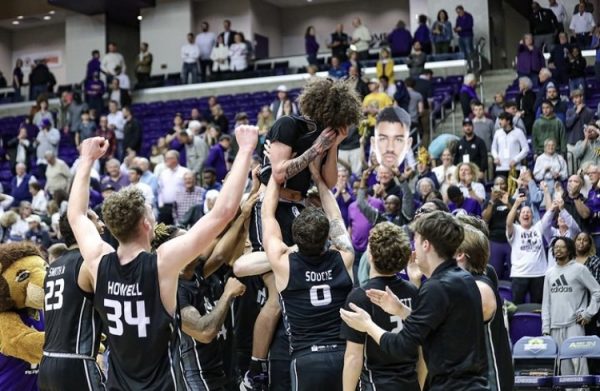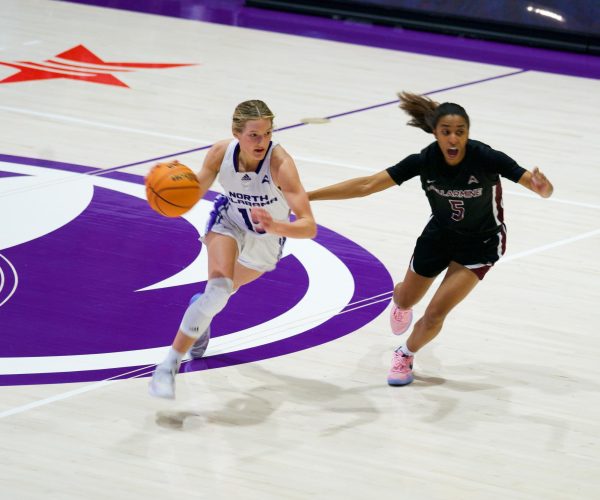Athletes work to stay on field, out of trouble
June 6, 2012
Like any other organization, the athletic department at UNA has rules its members must follow, but officials in the department said students need to do more than just follow the rules to be successful in athletics.
In general, student athletes at UNA must maintain 24 hours of courses in an academic year and maintain a 2.0 GPA—along with compliance of the rules the academic department follows—but Director of Athletics Mark Linder said student athletes are held to an even higher standard.
“We expect our student athletes to not only perform well in the class and represent us well on the field or court of play, but we also expect them to be champions in our community and do well socially,” Linder said. “With that, we want to make sure we step into those roles and take responsibility for representing the university well in all facets.”
Linder said the UNA athletics department must comply with the NCAA Division II guidelines on academics, recruiting, financial aid and the playing and practice seasons.
With the NCAA’s rules, the athletics department must also follow UNA’s code of conduct, the Gulf South Conference’s guidelines and rules unique to each team.
Beyond following the written rules, UNA head football coach Bobby Wallace said he wants positive athletes, but there are penalties to students who do break rules.
“There’s always punishment when a player does something that embarrasses the program,” Wallace said. “We handle that in house. If a kid commits a felony, he’s suspended from the team until that’s taken care of.
“Just because they’re arrested doesn’t mean they’re guilty. At the same time, when it’s that serious, then you take care of their business before they’re allowed back on the team.”
Wallace said while everyone makes mistakes and each situation would be handled separately, he and other coaches would not tolerate actions that embarrass the program, since they want to create a positive environment.
“What we want to create here is an atmosphere where players who want to behave in a (negative) manner will not be happy here,” Wallace said. “A person who wants to behave in a bad manner, he also wants people around him doing the same thing.”
Wallace said, despite some negative actions earlier in the semester, the athletics department is on its way to creating that atmosphere, but it also depends on the students.
“The big rule is drugs and alcohol,” said Beaumont Beasley, senior guard for UNA men’s basketball. “There’s no room to be doing drugs. And with alcohol, even if you’re 21, you need to be responsible or not do it at all.”
The university follows state, NCAA and its own laws when it comes to drugs and underage drinking, but when it comes to legal consumption of alcohol, coaches are free to set their own rules.
“Each coach can set the parameters of their team rules,” Linder said. “There are some coaches who say during the season absolutely no alcohol use, even if you are 21. Then we have some programs say no drinking 48 hours prior to a contest.”
As for drug use, Linder said all athletes sign a form at the beginning of each year stating they understand the drug testing processes and penalty programs of both UNA and the NCAA, and random drugs test are administered annually by UNA and bi-annually by the NCAA.
While student athletes may be put under extreme pressure, Beasley said they can protect themselves from doing negative actions.
“Just aware be of your surroundings and the company you keep,” Beasley said. “Also be aware of the things you put on social networks.”
Linder also said athletes should be careful with sharing on social networks, though they can be used positively to share information about games or community events.


